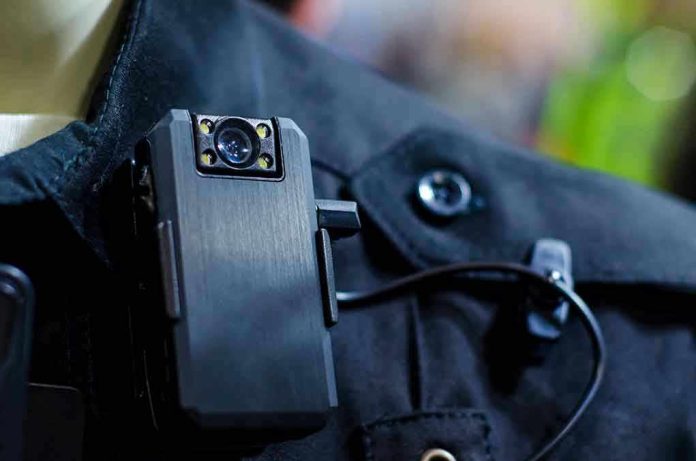
A woman calls 911 for help with a prowler, but the deputy who responds ends up shooting her dead in her own kitchen—and the verdict that followed has left her family calling it only “partial justice.”
Story Highlights
- Former Illinois deputy Sean Grayson convicted of second-degree murder for killing Sonya Massey, who had called 911 for help
- Body camera footage contradicted Grayson’s self-defense claims during the July 2024 shooting
- Massey’s family expressed frustration with the lesser charge, having expected first-degree murder conviction
- Grayson had a documented history of misconduct across multiple police departments before the fatal encounter
When Help Becomes Deadly
Sonya Massey made what should have been a routine 911 call on July 17, 2024. The Springfield, Illinois resident reported a possible prowler at her home, seeking protection from local law enforcement. Instead, she encountered Sean Grayson, a Sangamon County deputy whose response to her plea for help would cost Massey her life. The mother of two was shot and killed in her own kitchen during what began as a welfare check.
Grayson arrived with his partner Dawson Farley to investigate Massey’s concerns about a potential intruder. The situation escalated rapidly once deputies entered her home. According to trial testimony and body camera footage, the confrontation centered around Massey holding a pot of water in her kitchen. Grayson fired three shots, claiming later that he feared for his safety and acted in self-defense.
The Evidence That Sealed His Fate
Body camera footage became the prosecution’s most powerful weapon against Grayson’s self-defense claims. Released to the public five days after the shooting, the video contradicted key elements of the deputy’s account. The footage showed the sequence of events leading to the fatal encounter, providing jurors with an unfiltered view of those crucial moments in Massey’s kitchen.
The visual evidence proved so compelling that it overcame defense arguments about split-second decision-making under pressure. Prosecutors successfully argued that Grayson’s actions constituted criminal behavior rather than justified use of force. The jury’s conviction on October 29, 2025, marked a rare instance of a law enforcement officer being held criminally accountable for an on-duty shooting.
A Pattern of Problematic Policing
Grayson’s employment history revealed a troubling pattern that raises questions about police hiring and oversight practices. Court records showed he had worked for multiple law enforcement agencies and accumulated several disciplinary issues. His misconduct included a false arrest in 2021 and a reckless high-speed chase in 2022, yet he remained on active duty until Massey’s death.
The deputy’s background extended beyond civilian law enforcement problems. Military records indicated he was discharged for misconduct, adding another layer to his problematic service record. These revelations during the trial highlighted systemic failures in vetting and monitoring officers who move between departments. Grayson’s case exemplifies how officers with documented issues can continue serving despite red flags in their personnel files.
Justice Served or Justice Denied
The jury’s verdict delivered a mixed outcome that satisfied neither side completely. While convicting Grayson of second-degree murder represented a significant victory for police accountability advocates, it fell short of the first-degree murder charge prosecutors had sought. Massey’s family viewed the lesser conviction as inadequate given the circumstances of her death.
Massey’s father publicly characterized the verdict as “partial justice,” expressing frustration that the jury didn’t find premeditation in his daughter’s killing. The family’s disappointment reflects broader concerns about whether the criminal justice system adequately addresses police misconduct cases. Their reaction underscores the ongoing tension between legal standards of proof and public expectations for accountability when officers use deadly force against civilians.
Sources:
CBS News – Sean Grayson Verdict Sonya Massey Family
Wikipedia – Killing of Sonya Massey



